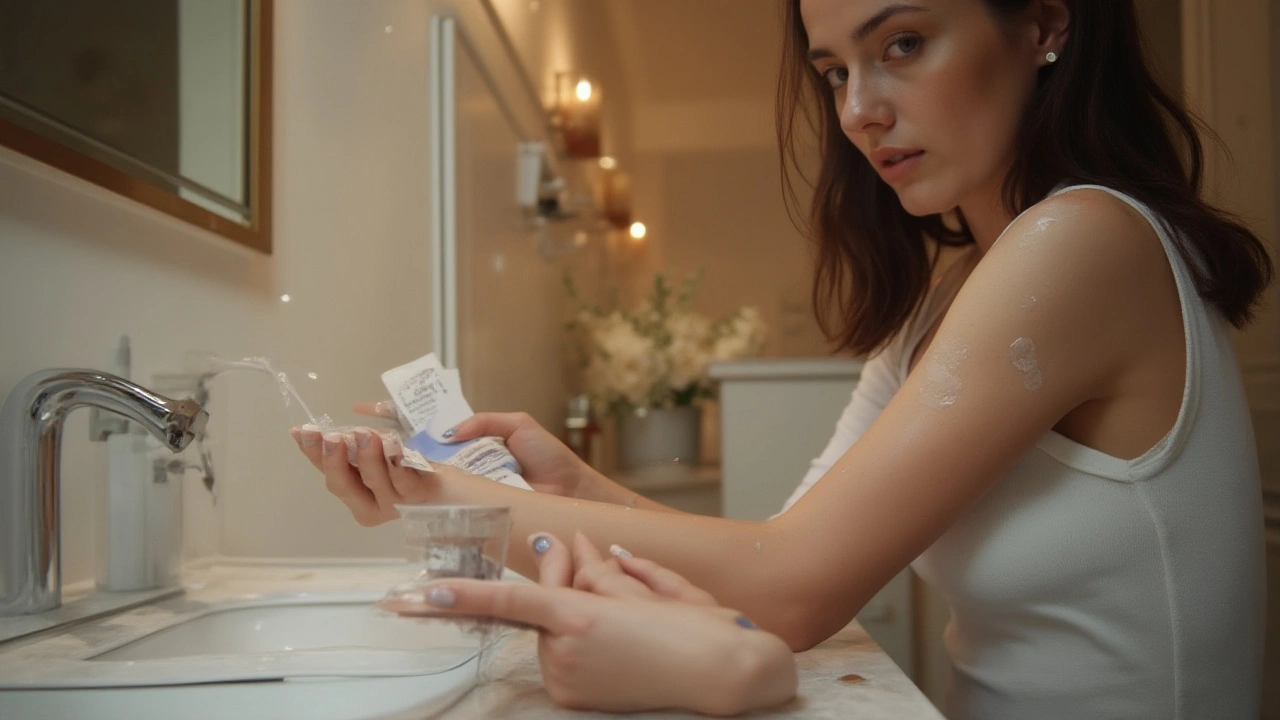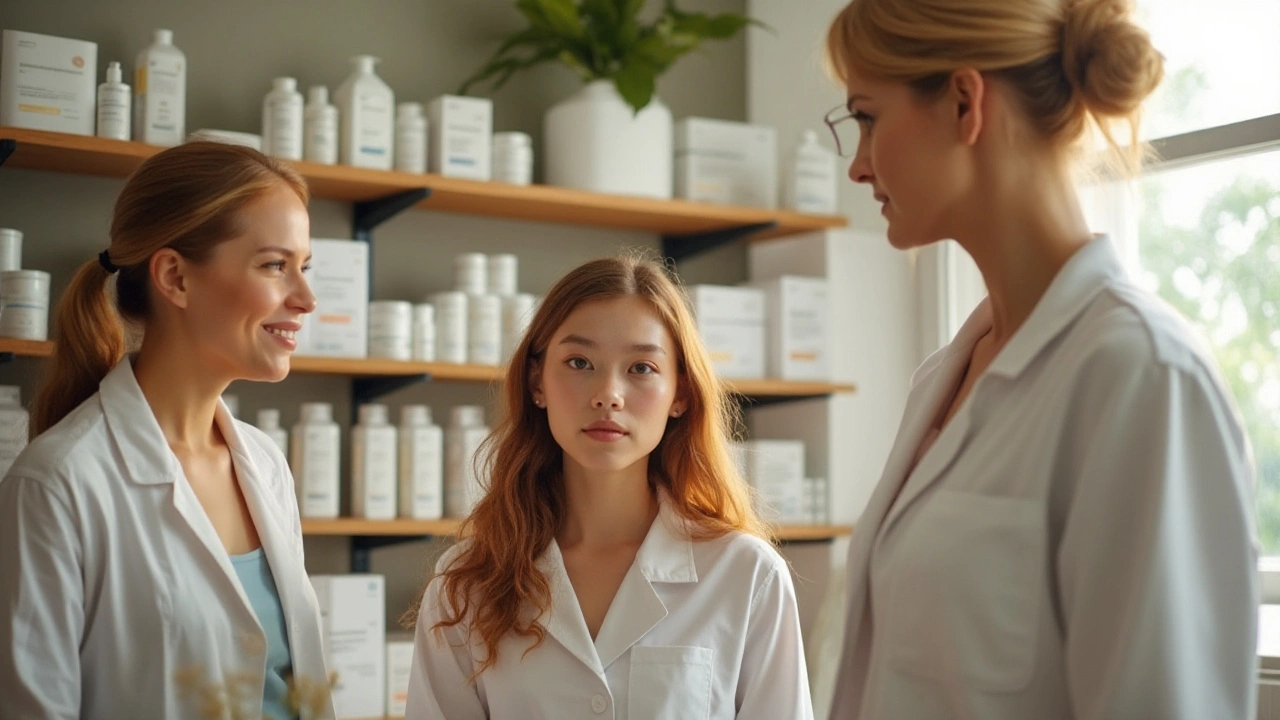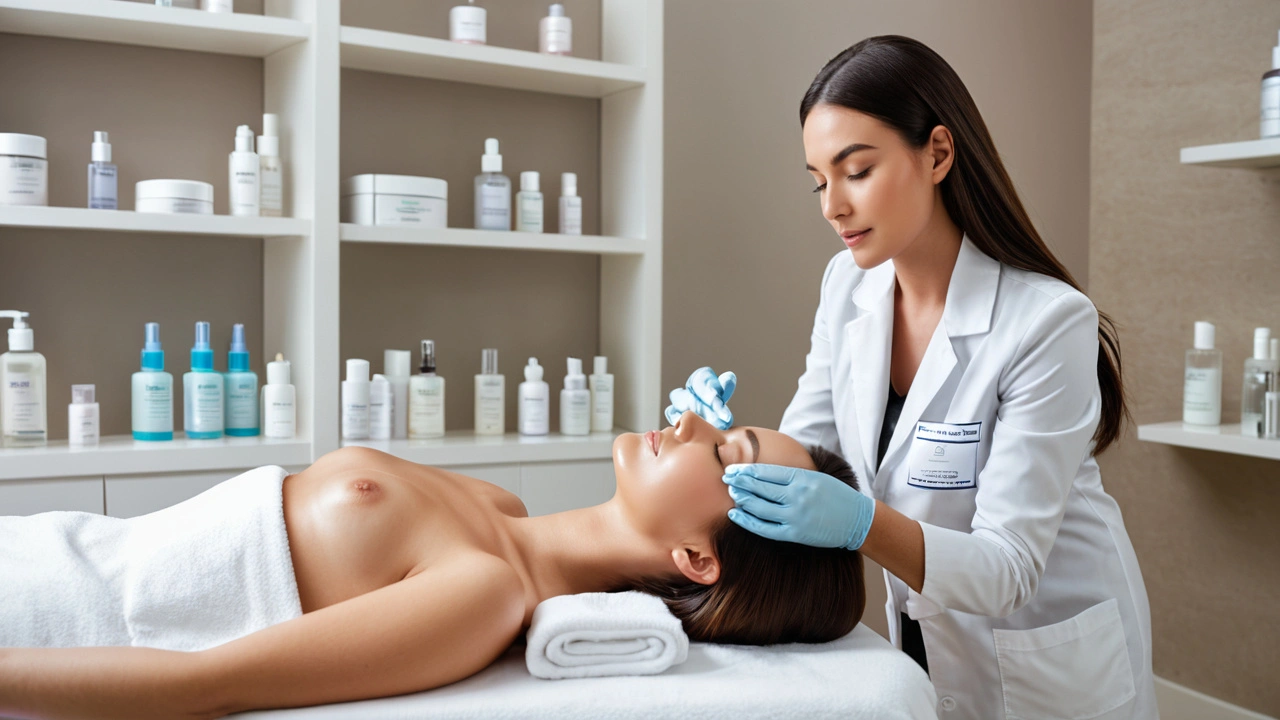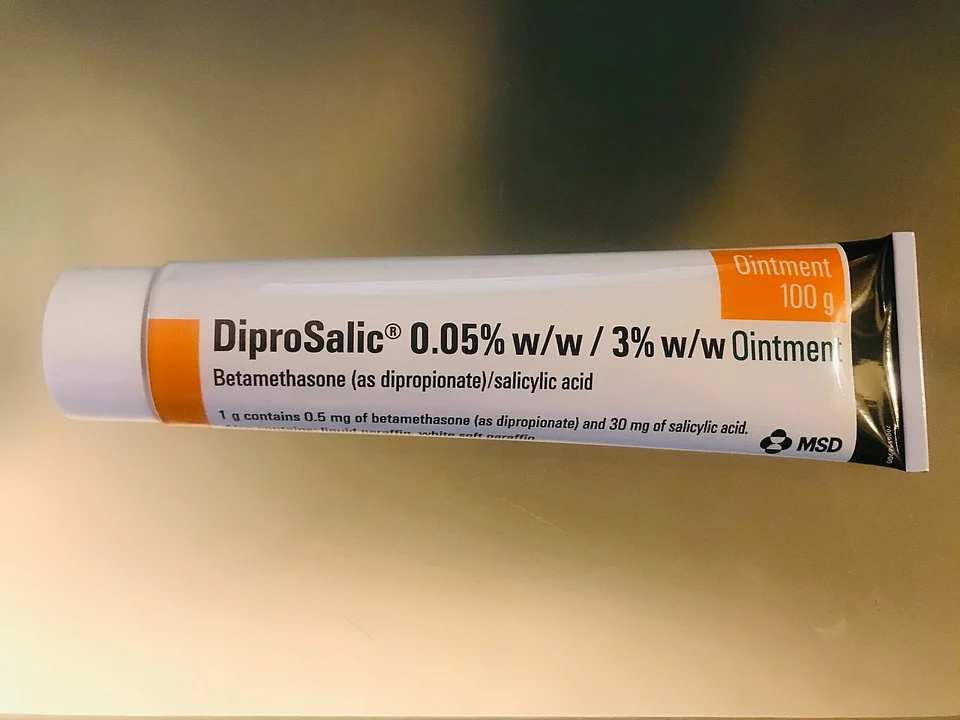Skincare: Practical Tips for Acne, Eczema, and Sensitive Skin
Want clearer, calmer skin without wasting time or money? This skincare hub pulls practical advice and safe treatment tips together — from eczema creams and steroid use to acne alternatives and chemical peels. Read short, useful guides and find what works for you.
Quick fixes and safe treatments
For itchy, inflamed patches, topical options like pimecrolimus (Elidel) and low‑potency steroids can help fast. Use Elidel as directed by your prescriber: apply a thin layer to clean, dry skin and avoid heavy use on broken skin. Betamethasone is stronger and works well for short courses on thickened areas, but don’t use it on the face or for weeks without a doctor’s OK. Always follow dosing notes, watch for thinning skin, and stop if irritation or spreading occurs.
What to expect from chemical peels. Chemical peels range from gentle to medium strength. A light peel smooths texture and helps small breakouts with minimal downtime. Medium peels offer stronger resurfacing but need recovery time and strict sun protection afterwards. Follow aftercare: moisturize, avoid sun, and use sunscreen daily. If you have active infection or darker skin tones, talk to a dermatologist about risks and pigment changes.
Acne, scarring, and alternatives
If acne is your main concern, a mix of at-home and clinic options works best. Over-the-counter retinoids, salicylic acid, and benzoyl peroxide tackle clogged pores and early breakouts. If those fail, consider professional treatments: chemical peels reduce acne and leftover marks, while prescription topicals or oral meds handle stubborn cases. Our guide on Isofair alternatives lists ten different paths — from adapalene gels to tea tree oil — so you can pick based on severity and skin type. Remember: slow improvements are normal; radical changes overnight are rare.
When to see a pro. If a condition spreads, blisters, bleeds, or doesn’t improve after a week or two of correct treatment, see a healthcare provider. Contact dermatitis and allergic reactions need specific testing and sometimes prescription meds. Emerging therapies for dermatitis and biologic options show promise for severe cases — these are handled by specialists.
Simple routine to start today. Keep it basic: gentle cleanser twice daily, targeted treatments (retinoid or steroid as prescribed), and daily sunscreen. Add a calming emollient for eczema and avoid known irritants like strong fragrances. Track what you use and how your skin responds; that makes conversations with your clinician clearer.
Quick checklist: patch test new products, introduce one active at a time, use SPF 30+ daily, avoid mixing strong retinoids with glycolic peels within a week, and keep appointments with your dermatologist for persistent issues. Note ingredients that trigger flares so you can avoid them in future purchases.
Want focused reads? Check the posts on Elidel use, betamethasone tips, chemical peels for acne, contact dermatitis research, and Isofair alternatives to find step‑by‑step advice for each topic.
If cost is a concern, Canadian pharmacies often offer affordable generic options; compare prices and check reviews. Share what worked for you to help others. Stay curious.

Acne: Types, Causes, and Topical vs. Oral Treatments
Learn the real causes of acne, how to identify your type, and which topical or oral treatments actually work - backed by clinical data and dermatologist insights.
Read more
Adapalene‑Resistant Acne: Causes, Treatments & Practical Tips
Learn why some breakouts ignore adapalene, the science behind resistance, and proven alternatives like isotretinoin, benzoyl peroxide, and lifestyle tweaks.
Read more
Elidel Cream Uses, Side Effects, and Tips: Guide to Safe Skin Treatment
Curious about Elidel? Discover how this eczema cream treats skin issues, what to watch for with side effects, and smart ways to use it safely.
Read more
Top 10 Best Alternatives to Isofair for Clear Skin
Explore a comprehensive guide on the top 10 alternatives to Isofair for treating acne and enhancing skin health. This article delves into a range of treatments, from topical solutions like retinoids and salicylic acid to natural options like tea tree oil. Each alternative is discussed in detail with its benefits and potential drawbacks, assisting readers in making informed decisions about their skincare routines. Suitable for individuals seeking effective and varied approaches to acne management.
Read more
The Ultimate Guide to Chemical Peels for Acne Treatment
Chemical peels can be a game-changer for those battling acne. This article dives into what chemical peels are, their benefits, types, and what to expect during and after the treatment. You'll also learn about potential side effects and aftercare tips to ensure you get the best results.
Read more
The Future of Contact Dermatitis Treatment: Emerging Therapies and Research
As a blogger, I'm always on the lookout for new advancements in medical treatments, and contact dermatitis is no exception. Recently, I've been following some exciting research on emerging therapies that could revolutionize the way we treat this common skin condition. From topical treatments to advanced biologic medications, the future of contact dermatitis treatment looks promising. I can't wait to see how these innovations will improve the lives of millions affected by this condition. Stay tuned to my blog for updates on these groundbreaking developments!
Read more
How to effectively use betamethasone cream for skin conditions
I recently discovered the wonders of betamethasone cream for treating various skin conditions. This powerful corticosteroid works wonders in reducing inflammation, itching, and redness on the skin. To use it effectively, make sure you clean and dry the affected area before applying a thin layer of cream. It's important to follow your doctor's prescribed directions, and never use it for longer than recommended. With consistent and proper use, betamethasone cream can truly help alleviate those pesky skin issues.
Read more